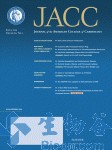2013年7月7日讯 /生物谷BIOON/–针对心脏病人和中风病人,阿司匹林是一种常用的血液稀释剂,该药物已经使用了50多年。但是医生对其工作机制以及为什么对有些人有效而对另一些人无效等问题依然知之甚少。
最近杜克大学科学家揭开了部分阿司匹林的谜团,并开发出一种通过血液检测基因活性的方法,该方法能够准确分析阿司匹林的治疗效果。
发表在Journal of the American College of Cardiology杂志上的最新文章表明,该最新的基因表达谱分析不仅测量了阿司匹林的有效性,同样也能够预测病人患有心脏病的几率。
该文章的通讯作者是杜克大学基因组科学和政策研究中心教授个性化治疗中心执行主席Geoffrey S. Ginsburg博士。Ginsburg博士称,我们认识到某些患有心脏疾病和中风病人对阿司匹林具有抗性。我们对所有病人施用相同剂量的阿司匹林,但是很可能一些病人需要更多剂量,而且有可能阿司匹林对某些人完全没有效果,需要进行其他的治疗方式。我们需要一种好的方法来检测并调整治疗手段,我们的研究为我们指明了方向。
杜克大学的科学家招募了三组志愿者,两组健康志愿者和一组心脏病人。健康志愿者每天服用325 mg阿司匹林,总共服用一个月。心脏病人服用在其治疗过程中使用过的低剂量的阿司匹林。接着科学家通过血液分析了阿司匹林对RNA表达和血小板功能的影响。
RNA微阵列分析表明60多个RNA的表达上调,科学家称这些RNA为”阿司匹林反应标志物”。这些生物标记物与阿司匹林治疗健康被试和心脏病病人后的血小板反应变弱现象呈正相关。
科学家也检测了阿司匹林反应标志物在做过心导管插入术的病人中的变化情况。他们发现该标志物能够有效分辨出最终患有心脏病的病人。
Ginsburg博士称他的研究团队在其他人群中重复这些实验,计划开发出一种标准检测系统。
NIH下属的综合医学科学研究所教授Rochelle Long博士称,近六百万人在服用阿司匹林来减少其心脏病发病率,但是该药并不是对每个人都有效。通过检测基因活性频谱,科学家发现相关的生物标志物。该工作或许最终能够开发出一种分析阿司匹林有效性的工具。(生物谷Bioon.com)

doi:10.1016/j.jacc.2013.05.073
PMC:
PMID:
Aspirin Exposure Reveals Novel Genes Associated with Platelet Function and Cardiovascular Events ONLINE FIRST
Deepak Voora, Derek Cyr, Joseph Lucas, Jen-Tsan Chi, Jennifer Dungan, Timothy A. McCaffrey, Richard Katz, L. Kristin Newby, William E. Kraus, Richard C. Becker, Thomas L. Ortel, Geoffrey S. Ginsburg
Objectives To develop RNA profiles that could serve as novel biomarkers for the response to aspirin. Background: Aspirin reduces death and myocardial infarction (MI) suggesting that aspirin interacts with biological pathways that may underlie these events. Methods We administered aspirin, followed by whole blood RNA microarray profiling, in a discovery cohort of healthy volunteers (HV1,n=50), and two validation cohorts of volunteers (HV2,n=53) or outpatient cardiology patients (OPC, n=25). Platelet function was assessed by platelet function score (PFS; HV1/HV2) or VerifyNow Aspirin (OPC). Bayesian sparse factor analysis identified sets of coexpressed transcripts, which were examined for association with PFS in HV1 and validated in HV2 and OPC. Proteomic analysis confirmed the association of validated transcripts in platelet proteins. Validated gene sets were tested for association with death/MI in two patient cohorts (n=587, total) from RNA samples collected at cardiac catheterization. Results A set of 60 co-expressed genes named the “aspirin response signature” (ARS) was associated with PFS in HV1 (r = -0.31, p = 0.03), HV2 (r = -0.34, Bonferroni p = 0.03), and OPC (p = 0.046). Corresponding proteins for 17 ARS genes were identified in the platelet proteome, of which, six were associated with PFS. The ARS was associated with death/MI in both patient cohorts (odds ratio = 1.2, p = 0.01 and hazard ratio = 1.5, p = 0.001), independent of cardiovascular risk factors. Compared with traditional risk factors, reclassification (net reclassification index = 31 – 37%, p ≤ 0.0002) was improved by including the ARS or one of its genes, ITGA2B. Conclusions RNA profiles of platelet-specific genes are novel biomarkers for identifying those do not response adequately to aspirin and who are at risk for death/MI. .

